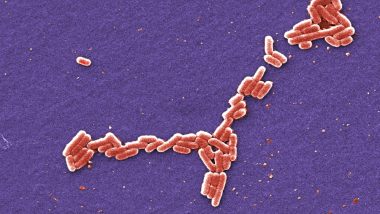Researchers have developed a tiny device that can rapidly detect harmful bacteria in the blood, allowing health care professionals to pinpoint the cause of potentially deadly infections and fight them with drugs. The tiny new device rapidly isolates, retrieves and concentrates target bacteria from bodily fluids. It efficiently filters particles and bacteria, capturing about 86 per cent of them, the researchers said. "The rapid identification of drug-resistant bacteria allows health care providers to prescribe the right drugs, boosting the chances of survival," said study co-author Ruo-Qian (Roger) Wang, Assistant Professor at Rutgers University-New Brunswick in the US. Coronavirus Vaccine: Scientists Identify 69 Drugs That 'May be' Effective in Treating COVID-19 Patients, List Here.
According to the study, published in the journal ACS Applied Materials & Interfaces, drug-resistant bacteria or superbugs are a major public health concern. Globally, at least 700,000 people die each year as a result of drug-resistant infections, including 230,000 deaths from multidrug-resistant tuberculosis. That number could soar to 10 million deaths a year by 2050 if no action is taken, according to a 2019 report. Coronavirus Vaccine: US Begins First Human Trial of COVID-19 Vaccination in Seattle.
The nano-device has magnetic beads of different sizes that are designed to trap, concentrate and retrieve Escherichia coli (E. coli) bacteria. The small spaces between the beads are used to isolate bacteria in the device. Magnetic beads are small nano- or microparticles composed of a ferrimagnetic core covered by a chemical coat. COVID-19 Outbreak: Scientists in Israel Likely to Announce Development of Coronavirus Vaccine, Says Report.
They have long been recognised as a way to solve scalability issues with respect to nucleic acid purification and manipulation. The study revealed that the inexpensive, transparent device is easy to fabricate and operate, making it ideal for detecting disease-causing organisms in laboratory and health care settings. The research team is working to perfect the device and plans to add multiple devices onto a small chip and explore scaling up testing in the field.
(The above story first appeared on LatestLY on Mar 23, 2020 06:51 PM IST. For more news and updates on politics, world, sports, entertainment and lifestyle, log on to our website latestly.com).













 Quickly
Quickly


